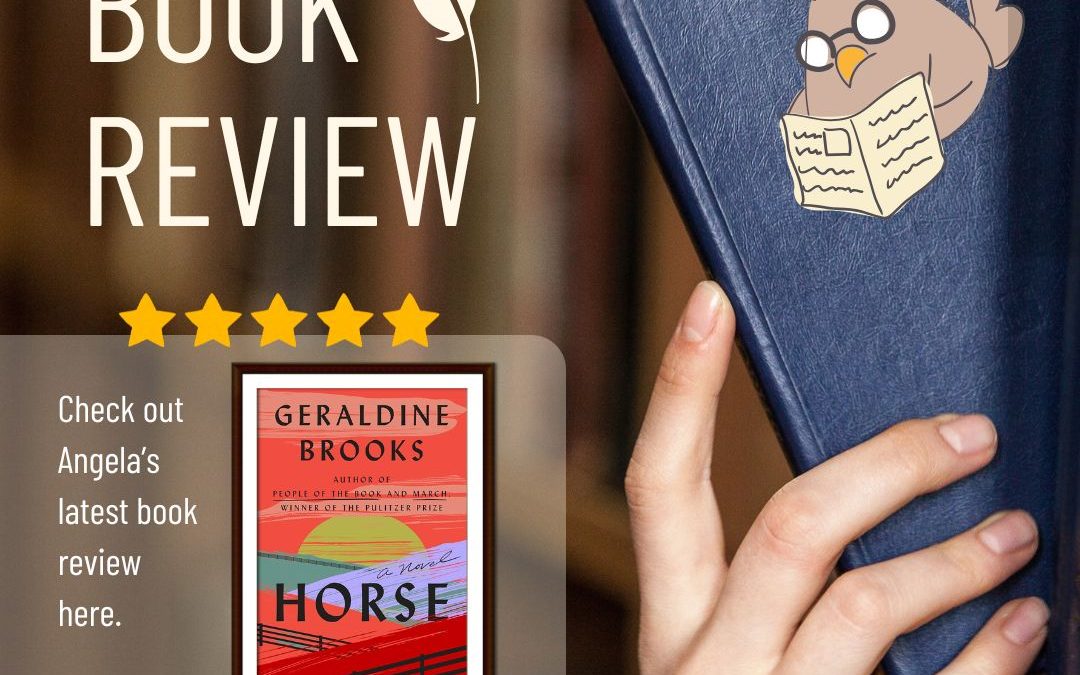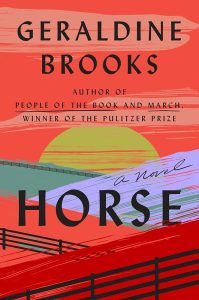A discarded painting in a junk pile, a skeleton in an attic, and the greatest racehorse in American history: from these strands, a Pulitzer Prize winner braids a sweeping story of spirit, obsession, and injustice across American history
Kentucky, 1850. An enslaved groom named Jarret and a bay foal forge a bond of understanding that will carry the horse to record-setting victories across the South. When the nation erupts in civil war, an itinerant young artist who has made his name on paintings of the racehorse takes up arms for the Union. On a perilous night, he reunites with the stallion and his groom, very far from the glamor of any racetrack.
New York City, 1954. Martha Jackson, a gallery owner celebrated for taking risks on edgy contemporary painters, becomes obsessed with a nineteenth-century equestrian oil painting of mysterious provenance.
Washington, DC, 2019. Jess, a Smithsonian scientist from Australia, and Theo, a Nigerian-American art historian, find themselves unexpectedly connected through their shared interest in the horse—one studying the stallion’s bones for clues to his power and endurance, the other uncovering the lost history of the unsung Black horsemen who were critical to his racing success.
Based on the remarkable true story of the record-breaking thoroughbred Lexington, Horse is a novel of art and science, love and obsession, and our unfinished reckoning with racism.
Angela’s Review
In the novel’s afterword Brooks says that as she pored over archives she was struck by the stories of the Black grooms, trainers, and jockeys who played a “central role in the wealth creation of the antebellum thoroughbred industry.” These key figures are hidden in the margins of history, Horse shifts between Jarret in 1850 and Theo and Jess in 2019 (with a stop in New York City in the 1950s), and it carries the heavy burden of acknowledging the deep roots and painful persistence of structural racism.
Geraldine Brooks is a white woman, writing from the perspective of an enslaved man and a multiracial student confronting the disappointing limits of “woke” culture. It’s a bold choice for a novelist, especially when debates over cultural appropriation in fiction are heated and divisive. I think it works but then again, I am a white woman reading the book. This is a great book, but that being said, it isn’t always an easy read emotionally.
The novel started out as a story about a racehorse, but as she began to research the history of thoroughbred racing in America, Brooks writes, “it became clear that this novel could not merely be about a racehorse, it would also need to be about race.” And in the end, the novel is all about race. I didn’t know if I would like this book but from beginning to end, I loved it. I give this book 5 stars.
What critics are saying…
“Brooks’ chronological and cross-disciplinary leaps are thrilling.” —The New York Times Book Review
“Horse isn’t just an animal story—it’s a moving narrative about race and art.” —TIME
“A thrilling story about humanity in all its ugliness and beauty . . . the evocative voices create a story so powerful, reading it feels like watching a neck-and-neck horse race, galloping to its conclusion—you just can’t look away.” —Oprah
Daily Winner of the Anisfield-Wolf Book Award, the Dayton Literary Peace Prize, and the Dr. Tony Ryan Book Award · Finalist for the Chautauqua Prize · A Massachusetts Book Award Honor Book


